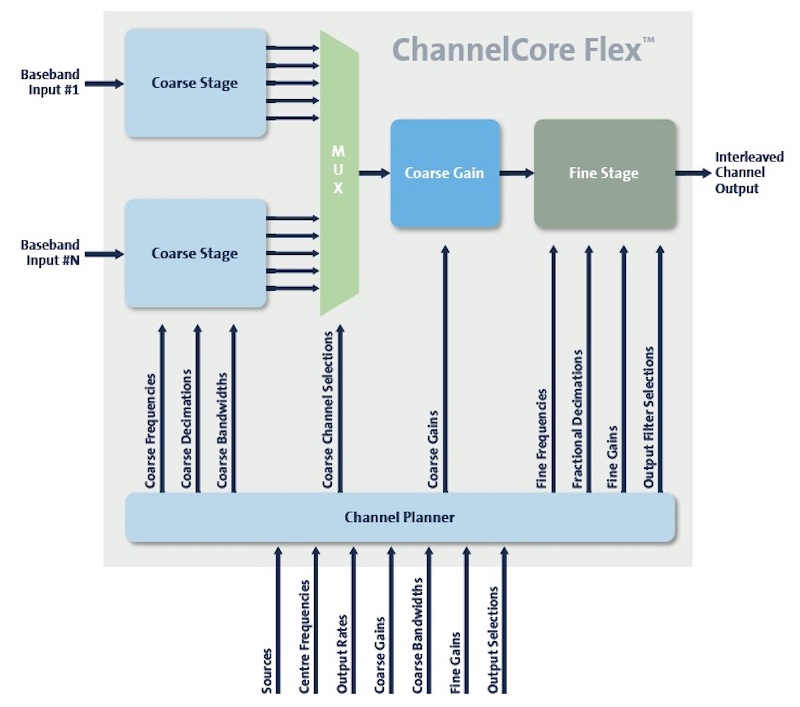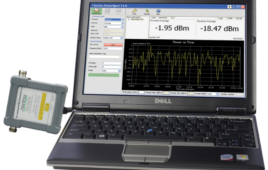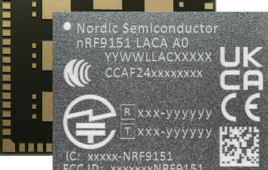RFEL’s latest significant release is its advanced FPGA-based channeliser IP – ChannelCore Flex™, which was unveiled at EW Europe in London Olympia from 6th to 8th June 2017. The latest enhancement of this award winning IP now offers support for up to 16 wideband inputs, each capable of processing several GHz of bandwidth.
With arbitrary input parallelism, theoretically, the input bandwidth of each input is unlimited. Hence, for an example with 16x input parallelism, a single IP core can now simultaneously process more than 50 GHz of bandwidth.[1] Alternatively, the same core could be used to process a 16-channel Direction Finding (DF) array with over 3 GHz of bandwidth per channel.
Joining RFEL on stand 27, is Novator Solutions AB who is a key reseller of RFEL IP. Together RFEL and Novator are Gold Sponsors of this year’s EW Europe event. Through Novator, LabVIEW users are able to access RFEL’s channeliser IP as a toolkit available on the National Instruments LabVIEW tools network.
Novator Solutions is the first commercial customer for this new ChannelCore FlexTM release and has integrated the IP into the heart of its new NCR-10 USRP channeliser system. The NCR-10 uses the Ettus USRP X310 hardware platform featuring a Xilinx Kintex7-410T FPGA. This ubiquitous platform now offers a dual, twin-Rx input stage offering a 4 input channels each with an 80 MHz input BW. ChannelCore Flex processes this 320 MHz bandwidth in a single core, and in this configuration provides up to 512 run-time programmable channels. The NCR-10 is capable of being commanded and configured remotely via TCP/IP over Ethernet. The data product is then available over a separate UDP port to be streamed to data consumers/analysts wherever they are located. Novator will be demonstrating NCR-10 using ChannelCore Flex live on stand at EW Europe.
The combination of RFEL IP and Novator’s hardware integration meets the increasing need for ever wider bandwidth monitoring using COTS platforms and allows users to access this class-leading technology using industry standard tools and environments such as LabVIEW.
Also in this release, RFEL has dramatically enhanced the Spurious Free Dynamic Range performance. Two additional configurations are now offered, with either 100 dB or 120 dB of spurious free processing range, providing a real operational benefit to COMINT applications.
With other features such as Global Frequency Adjustment on each input channel and Dynamic Timestamp Latency Correction for each output channel, this release of ChannelCore Flex offers a host of user-driven features for a wide range of demanding channelisation applications such as communications intercept, Electronic Warfare (EW), security, industrial applications, COMINT, SIGINT, sonar, radio astronomy, research and software-defined radio.
Richard Streeter, RFEL’s sales and marketing manager, said, “This channeliser IP just continues to deliver. This is a major release with a new input stage that is redefining what Wideband Processing means. This core also provides a host of user orientated features and real-time controls. Our proven partnership with Novator means end-users can access this leading IP on affordable platforms and establish simple to use remote monitoring over IP networks. This is a high-performance, flexible COMINT solution, out of the box.”
ChannelCore Flex core uses a novel architecture to implement a large number of Digital Down Converter (DDC) channels very efficiently. FPGA resources are used in proportion to the log of the number of channels enabling thousands of channels to be implemented in a moderately sized FPGA. Real-time, on-the-fly control is available for each channel to change the input source selection, centre frequency, sample rate, gain and filter response including bandwidth. There is a user programmable option to maintain phase coherency when reprogramming channels and the core is still capable of being phase coherent across multiple cores.
The new ChannelCore Flex enables multi-GHz bandwidths to be monitored so that either hardware costs can be reduced or more bandwidth monitoring to be performed for a similar system cost. Previously, the core was limited to input bandwidths in the order of the FPGA clock rate (typically around 250MHz) but this new wideband input option introduces a parallel architecture supporting multi-GHz bandwidths on each input. The input parallelism is scalable so that the practical input bandwidth limit is governed only by the available FPGA resources. Coupled with new FPGA devices such as Xilinx’s Ultrascale and Ultrascale+ range, RFEL’s AXI-interfaced IP allows designers to achieve extremely complex DSP solutions with very short integration times.
RFEL can provide models and evaluation cores to support evaluation and early system design. The models are available in the Matlab™ environment. The evaluation cores are fully featured versions that operate for a limited time before data is scrambled. This allows time for evaluation and testing of the effectiveness of the design without the commitment of a full purchase. When a full license key is purchased, this limitation is removed and the core operates indefinitely.
ChannelCore Flex is available now for Xilinx FPGAs, with other devices on request. Further data and pricing is available from RFEL now.





